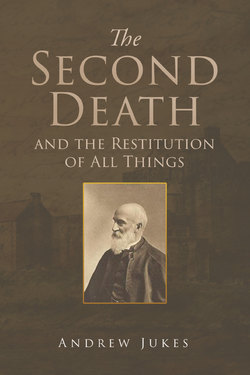Читать книгу The Second Death and the Restitution of All Things - Andrew Jukes - Страница 15
На сайте Литреса книга снята с продажи.
ОглавлениеChrist both died, and rose, and revived, that He might be Lord both of the dead and living.”1 He further declares that “for this sake he suffers reproach, because he hopes in the living God, who is the Saviour of all men, specially of those who believe;”2 that this God “will have all men to be saved, and to come to the knowledge of the truth;” that therefore “thanksgivings as well as prayers should be made for all,” because there is “a ransom for all, to be testified in due time;”3 and lastly that “God hath concluded all in unbelief, that He might have mercy upon all.”4 The beloved Apostle St. John repeats the same doctrine, that “the Father sent the Son to be the Saviour of the world;”5 “for God sent not His Son into the world to condemn the world, but that the world by Him might be saved;”6 further he teaches that the Only-Begotten Son “is the propitiation, not for our sins only, but also for the sins of the whole world;”7 that He is “the Lamb of God, which taketh away the sin of the world,”8 and “was revealed for this very purpose that He might destroy the works of the devil,”9 and that, as a result, “there shall be no more death, nor sorrow, nor pain, because all things are made new, and the former things axe passed away.”10 For “the Father loveth the Son, and hath given all things into His hand;”11 and the Son Himself declares,” All that the Father giveth me shall come to me; and him that cometh to me I will in no wise cast out. For I came down from heaven, not to do mine own will, but the will of Him that sent me. And this is the Father's will, which hath sent me, that of all which He hath given me I should lose nothing, but should raise it up again at the last day.”12
Now is not this apparent contradiction,— few finding the way of life, and yet in Christ all made alive,— God's elect a little flock, and yet all the kindreds of the earth blessed in Abraham's seed,— mercy upon all, and yet eternal punishment,— the restitution of all things, and yet eternal destruction,— the wrath of God for ever, and yet all things reconciled to Him,— eternal fire prepared for the devil and his angels, and yet the destruction through death, not of the works of the devil only, but of him who has the power of death, that is the devil,— the second death and the lake which burneth with fire, and yet no more death or curse, but all things subdued by Christ, and God all in all. What can this contradiction mean? Is there any key, and if so, what is it, to this mystery?
